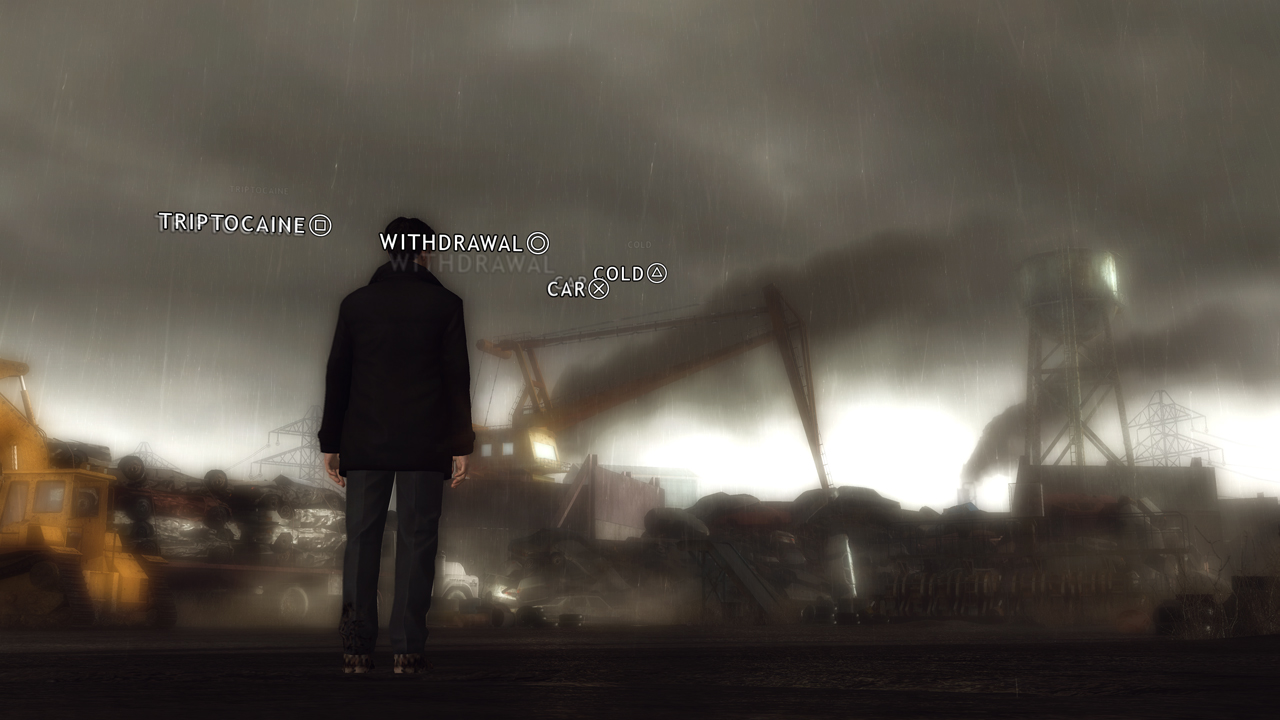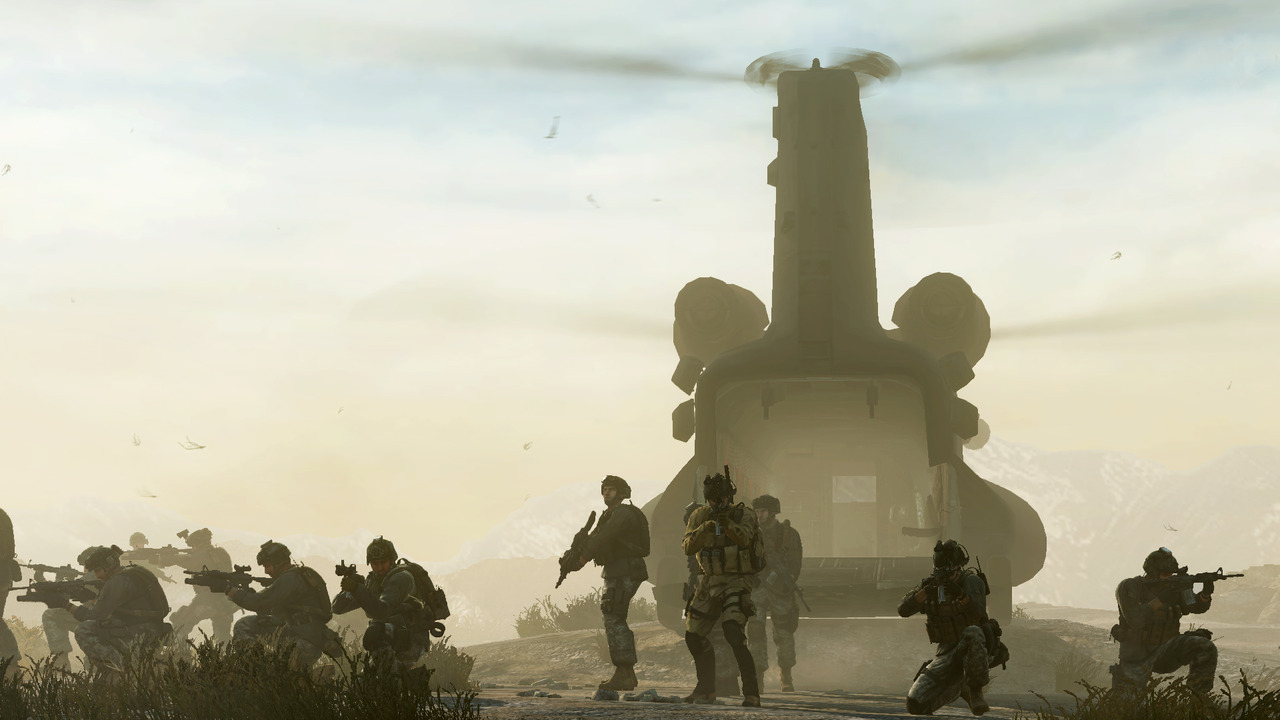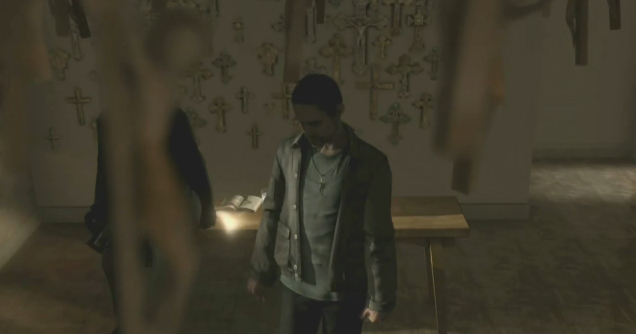Best of 2010: Games
When blockbusters were king
10
Medal of Honor
Released in response to the behemoth that is Call of Duty, the Medal of Honor reboot that transitioned the series to modern warfare was met with less critical praise and less enthusiastic players. I found this strange upon playing MoH myself because while it fell into typical trappings of a linear explosion-fest, it was much more intimate and authentic feeling (though not actually authentic) than Call of Duty, or any other major modern war FPS on the market. Medal of Honor’s tighter plotting focuses on a group of operatives in Afghanistan over the course of three days. You join in stealthy journeys through hostile territory, open firefights, and behind state-of-the-art technology. Developer Danger Close does a good job of changing up the combat and using innovative tricks to enhance the reality, in one specific instance you have to use a low-res camera to spot mortar teams hidden within the tundra of a cliffside (suddenly you understand why cave-dwelling guerrillas are so dangerous), as you deploy your missiles you watch for 10 seconds while your target has no idea their fate has been sealed. Unlike the fancy fantasy tech on other games, MoH attempts gritty realism and it works. The biggest fault of the game is its abundance of technical glitches as a result of a rushed release, AI is stupid, objectives won’t progress, enemies clearly spawn in visible areas. This has been the main criticism by players, but I prefer to overlook technical issues in favor of artistic ones.
9
Castle Crashers
Beyond insane and juvenile, Castle Crashers is a great marriage of the Flash playground of Newgrounds in local console multiplayer. Playing with friends is a must, and when you are, preferably on the same couch, using swift strategy and teamwork as well as understanding the games polished combat system, Castle Crashers is an old-school co-op beat-em-up like none other. The beautiful animation and design is fully taken advantage of in a huge variety of stages and characters. This game came out on Xbox a while ago, but was only available on PS3 in 2010.
8
Assassin’s Creed: Brotherhood
Forget the multiplayer nonsense, Assassin’s Creed: Brotherhood is a solid, worthy single-player successor to Assassin’s Creed II. It is one of those sequels that faces the uphill battle of “why is this a full priced game?” with the continuation of the second game’s plot rather than moving on, and the familiar mechanics, but Brotherhood actually builds on some of the nagging inconsistencies in the second game and creates a deeper RPG system than the shallow baby steps the previous game took. While occasionally frustrating, Brotherhood really hits its stride once players are able to assemble assassin teams which spark new life into the series whose initially novel kills have become expected. It has the same kind of intense speed to it, but with a sense of command; you can truly feel Ezio rise in power as a result of your actions which is a satisfying feeling.

7
Call of Duty: Black Ops
While Modern Warfare 2 spiralled out of control on the multiplayer end with absolutely ridiculous killstreaks, a punishing leveling system, balance issues, and many more problems that millions of players were apparently oblivious to, Black Ops actually took these issues into consideration and practically did away with them. One friend regarded Black Ops’ multiplayer as “Modern Warfare 2’s without all the shitty parts”, which is exactly what it is.
I feel like I am one of the few people who recognize that Call of Duty games have exceptional single-player modes made up from huge budgets and a large team, something that was at one time a focus of the franchise in the first few games (first few not meaning first Modern Warfare, yes, there were CoD games before that!) and Black Ops is no different. A decently sized campaign for a first-person shooter full of explosive set-pieces that I’ll have to accept is what Call of Duty is nowadays and move on. The wide variety of settings in Black Ops makes its goofy sci-fi tinged plot less offensive as you will be fighting through The Bay of Pigs Invasion, Vietnam, secret Cold War operations, and even late WWII. It’s a good variety to keep the game fresh and allow Treyarch to put their own stamp on the series.
6
Heavy Rain
A wildly ambitious experiment that attempted to put narrative before action, which up until now, has been a major hurdle for video games that few had bothered to challenge. Heavy Rain’s dynamic gameplay system can often feel monotonous at times, but the powerful impact of your actions elevates the game beyond mere mini-game. A perfect introductory game for new players and a wild experiment for veterans, Heavy Rain doesn’t have a Game Over screen. For the first time, your actions carry actual weight and any mistake or death you cause ripples through the game and affects everything to come after it. While the variety between outcomes isn’t as vast as the game smartly hides, and the plots are so independent they fail to capitalize on the spider-web of influence your actions can have, it still creates an experience that is simply like none other. It successfully builds an emotional narrative built on a brilliant graphics engine that can teeter between emotionally engaging to overwrought. It’s putrid twist ending is offending to the game’s own intelligence, as well as yours, but it is still hard to deny the innovations, and the mixed successes of Heavy Rain.
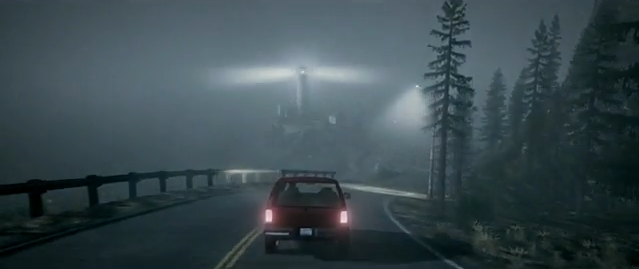
5
Alan Wake
Like the Max Payne series before it, Alan Wake, from developer Remedy, is a true labour of love. Taking inspiration from Steven King, Twin Peaks, and The Twilight Zone the game offers several nods to each respective source that fans will pick up on and others will pass over without missing anything important. Like Max Payne, the combat is fairly straightforward, sometimes clunky, and repetitive; the best parts of the game come from the world that it inhabits. The secluded, obsessive town culture who absolutely adore your character, Alan Wake, to creepy degrees, and the Twilight Zone inspired TV shows that populate the world are not only welcome elements that expand the depth of the game, but these elements also heighten the eery tone.
Like a typical Steven King novel, the world and tone of the game are initially cheery and bright, only to turn completely around early in the first act where suddenly everything is constantly dark, everyone is suspicious, and the unexplainable is happening everywhere. The plot of Alan Wake, perhaps unintentionally inspired by King, makes little-to-no sense by game’s end, but it’s alright because it is such a thrilling journey getting there. While environments can sometimes feel repetitive and objectives feel forgettable, Remedy smartly changes up the locales at the right occasions and twists the plot in all the right ways to keep you intrigued, even when you begin to suspect the mystery is really going nowhere.
Remedy’s games are always cinematic with heavy emphasis on solid voice acting, something that is still an unacceptably large issue in the gaming industry, so it is our good fortune that Wake, like Payne before him, is acted with the right sense of confusion and dread through an appropriately gravelly voice of a past-his-prime writer. Wake is self-aware in regards to that his story is appearing around him, speaking through internal monologues to the player, and vocally observing the world which extends the interactive novel approach that Remedy is going for and boosts the overall production value of the product. Remedy are still too heavy on the metaphors and symbolism, but when it’s all said and done, it’s more compelling than Heavy Rain. It’s just a shame more people didn’t pick this one up, oh well, that’s why they call them cult classics.

4
Mass Effect 2
Like any good sequel, Mass Effect 2 picks up the pieces from Mass Effect 1 and shuffles them around to make them work better. Mass Effect 1 had the typical Bioware problem of having too much going on at once. The inventory system was an abomination and the RPG elements could sometimes be sluggish. Mass Effect 2 streamlines the experience, which yes, means it is completely dumbed down. Mass Effect 2 goes so far in the opposite direction in some gameplay aspects that it is almost tediously simple. There is no inventory, at all, which took me hours to figure out because I couldn’t believe that as a possibility; the combat is about shooting, not role-playing, at all. However, while the mechanics are dumbed down, the storyline is improved. Shepard’s new morally ambiguous mission is a terrific jumping off point for players to decide their feelings and how they will develop their character. Interactions with old and new faces is full of rich and deep dialogue and history with dialogue trees feeling large when they are actually small and creating an emotional investment in characters that no other game has accomplished, not even Heavy Rain. As you assemble your team you find what pairs work the best and build a solid investment in your crew, so when the final missions comes Bioware builds a powerful sense of suspense and heartache in a completely natural and authentic way. Mass Effect 2 will likely go down as a video game masterpiece, even in a year rich with groundbreaking character-focused games (Heavy Rain, Alan Wake, Fallout: New Vegas).
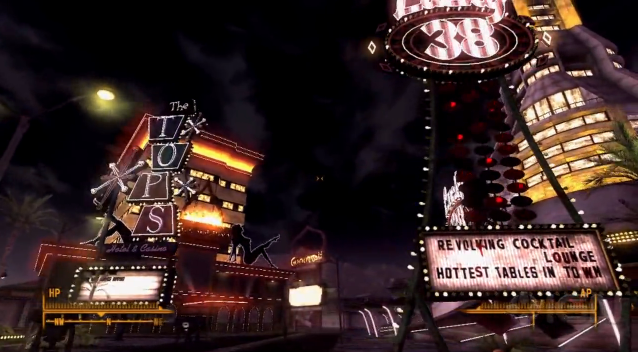
3
Fallout: New Vegas
Fallout: New Vegas is bursting with character, even its legion of bizarre, and sometimes game-breaking glitches have been met with their own acclaim by players who laugh and share their bizarre encounters in this world without rules. While Fallout 3 was impressive for its detailed, realized world, New Vegas builds on that with a storyline and population that doesn’t feel stale and indifferent. The zany Mojave Desert that revolves around the power struggle in the former Las Vegas strip attracts all sorts of eccentrics from around the land leading to an overwhelming number of fun quests with endlessly memorable characters and gangs. Whether it be The Kings who all dress and talk like Elvis, who they praise only because they know he was once referred to as a “king”, or Caesar’s Legion whose ignorance to history makes them pronounce it “ki-sar”. There is always something to discover and some way to play the odds in this wasteland that may be a technical disaster, but I love it all the more for it.
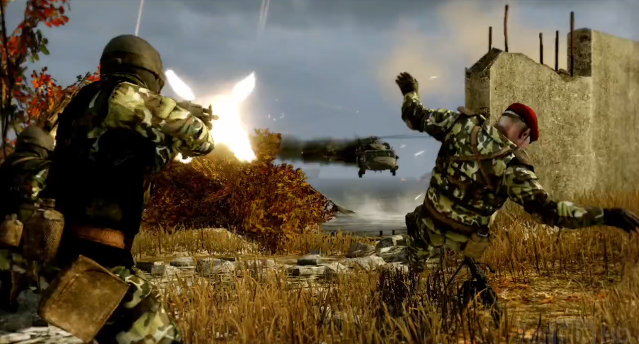
2
Battlefield: Bad Company 2
A riveting multiplayer experience that finds a proper balance between the expansive nature of the classic Battlefield games and console limitations. With absurdly huge maps that strategically branch out as the game progresses and a brilliant sense of balance between four classes and a wide variety of vehicles, Bad Company 2 is a strategic players dream. Smartly branching huge teams into four man squads, communication is maintained between those who can actually assist you, and there is actual reward for doing so. Not assuming players are good enough to play properly on their own (and with good reason), DICE creates a great points system that makes supporting your team as valuable as killing the enemy.
The destruction physics of the game make each match unpredictable and usually very memorable. It’s tech that you really need to experience to appreciate.
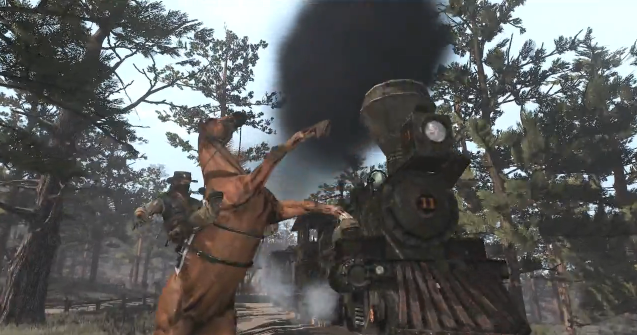
1
Red Dead Redemption
“This is America! Where a lying, cheating degenerate can prosper.” – Nigel West Dickens, Red Dead Redemption
Red Dead Redemption, the spiritual follow-up to Rockstar’s controversial, but groundbreaking Grand Theft Auto IV may take the opposite route in terms of landscape, but has much in common in terms of its concepts. Taking place in 1911 when the ways of the largely lawless Old West were dying out in favour of more federally controlled society with more advanced technologies, the game largely looks at the roots of America, it’s culture, and particularly contemporary times through the lens of the Wild West. Often times, Red Dead Redemption can be stupidly blunt in it’s assertions about America, but other times it can be painfully truthful. Playing as an outlaw named John Marston on a mission by some feds in exchange for his family, the player travels along the southern American countryside and into Mexico where he encounters different caricatures of the period from loony gold-diggers to traveling scam-artists. Despite playing the era in broad strokes with a bit too much emphasis on the Hollywood vision of the West, the game develops the relationships of not only people, but of entire communities. Several smaller farm villages share their united distrust for the federal government sticking its nose in their affairs, they admit to the dangers of their lifestyles but remain proud of their independence and freedom. The strong individualism that is present in the American towns is seen in sharp relief when Marston travels into Mexico where a revolution is crippling the country and lawlessness is seen in its most extreme degrees which gives balance to the games core criticism of America’s foundation and principals. If seen as a one-hundred year prequel to Grand Theft Auto IV, Red Dead attempts to dissect the nation’s defensiveness towards gun rights, gaining control of technology, finding and maintaining wealth among other social issues. When you jump ahead to the Liberty City of Grand Theft Auto, not much as really changed aside from infrastructure — the lawlessness remains, the weapons and technology have merged, yet the law has become more invasive.
Most impressively however, is the stunning vistas that players explore throughout Red Dead Redemption. Rockstar proved that games can become fully realized cities where you are merely a single pawn, now they have proven the same to the opposite effect: games can be vast, barren country sides where your actions can lead to social revolution and a new era. The powerful and beautiful game engine shows detailed landscapes and a complex environment system that simulates weather patterns from rain to snow, as well as gorgeous, can’t-believe-it’s-not-real sunsets on the rocky hillsides. The game makes side-quest features out of its vegetation and animals that populate the dense world with various, distinguishable plants and animals that interact with each other and behave as though they are part of actual habitats. Rockstar took the industrial, mechanical nature of a city that operates even when the player isn’t around to see it, and made it organic.
played on Playstation 3; developed by Rockstar San Diego, Rockstar North.
